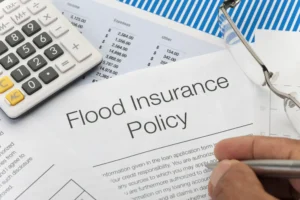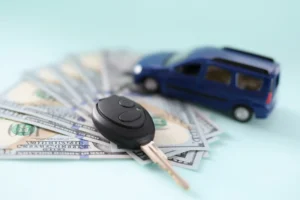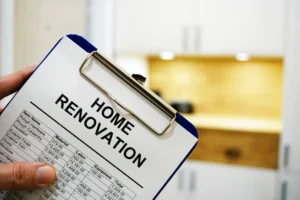
Debt Consolidation: Your shortcut to financial freedom. Ready to break free from the maze of multiple debts and overwhelming payments? In this guide, we’re unveiling the art of debt consolidation – a game-changing strategy to streamline your financial life effectively. Say goodbye to juggling various creditors and confusing due dates, and hello to a simplified path towards regaining control of your finances. Let’s dive in and discover how to consolidate your debts, reduce stress, and work toward a debt-free future.
Debt Consolidation Strategies: Streamlining Payments Effectively
Are you drowning in a sea of monthly payments, struggling to keep track of multiple due dates and interest rates? If so, you’re not alone. Many of us find ourselves juggling various debts, from credit cards to personal loans, and it can be overwhelming.
But fear not! There’s a financial lifeline known as debt consolidation that can help you regain control of your financial ship. In this guide, we’re going to dive deep into the world of debt consolidation, exploring effective strategies to simplify your financial life and work toward a debt-free future.
The Debt Dilemma
Before we embark on our debt consolidation journey, let’s take a moment to understand the dilemma many of us face. Imagine you have three credit cards, a personal loan, and a car loan, each with its own interest rate and monthly due date. It’s like trying to juggle five balls simultaneously; it’s only a matter of time before one drops.
Late payments and high-interest rates can quickly spiral into a financial nightmare. That’s where debt consolidation comes to the rescue. It’s like catching all those juggling balls in one swoop.
What Is Debt Consolidation?
Debt consolidation is a financial strategy that involves combining multiple debts into a single, more manageable loan or payment. The primary goal is to simplify your financial life, reduce your interest rates, and potentially lower your monthly payments.
The Benefits of Debt Consolidation
Let’s talk about the perks of debt consolidation, shall we?
1. Simplified Finances
With debt consolidation, you’ll have just one monthly payment to worry about, making it easier to budget and plan your finances. No more juggling multiple due dates.
2. Lower Interest Rates
By consolidating your debts, you may qualify for a lower interest rate than what you were paying on individual loans or credit cards. This can save you a significant amount of money in interest over time.
3. Potential Debt Reduction
Some debt consolidation methods, such as debt management plans, may negotiate with creditors to lower the overall amount you owe. This can accelerate your journey to becoming debt-free.
4. Improved Credit Score
Consistently making on-time payments through a debt consolidation plan can positively impact your credit score, as it demonstrates responsible financial behavior.
Debt Consolidation Strategies
Now, let’s explore some effective debt consolidation strategies:
1. Personal Loans
You can take out a personal loan to pay off your existing debts. Personal loans often come with fixed interest rates and terms, making them a straightforward choice.
2. Balance Transfer Credit Cards
Some credit cards offer promotional periods with low or 0% interest rates on balance transfers. Transferring high-interest credit card debt to one of these cards can save you a bundle.
3. Home Equity Loans or HELOCs
If you’re a homeowner, you might consider using the equity in your home to consolidate debt through a home equity loan or a home equity line of credit (HELOC). These loans often offer lower interest rates.
4. Debt Management Plans (DMPs)
Nonprofit credit counseling agencies offer DMPs, which involve negotiating with creditors to lower interest rates and create a consolidated repayment plan. You make one monthly payment to the agency, which then distributes it to your creditors.
5. Debt Consolidation Loans
These are loans specifically designed for debt consolidation. They allow you to pay off multiple debts and focus on repaying a single loan with a fixed interest rate.
A Real-Life Debt Consolidation Story
Let’s meet Sarah, a graphic designer who found herself struggling with credit card debt, a personal loan, and a car loan. Her monthly payments were draining her finances, and she felt stuck.
Sarah decided to explore debt consolidation and opted for a personal loan with a lower interest rate than her credit cards. She used the loan to pay off her credit card debt and personal loan, leaving her with only one manageable monthly payment.
With a clearer financial path, Sarah diligently paid down her debt, and within a few years, she was debt-free. Her credit score improved, and she finally had the financial freedom she had been longing for.
Conclusion
Debt consolidation can be your ticket to streamlining payments effectively and working toward a debt-free future. By simplifying your finances, reducing interest rates, and potentially lowering your monthly payments, you’ll regain control of your financial ship. Whether you choose a personal loan, balance transfer credit card, or another method, debt consolidation can pave the way to financial freedom.
FAQs On Debt Consolidation Strategies
How does debt consolidation affect my credit score?
Debt consolidation can impact your credit score both positively and negatively. Initially, it may cause a slight dip due to the new credit inquiry and potential closing of old accounts. However, as you make on-time payments and reduce debt, your score can improve over time.
Will I qualify for debt consolidation with bad credit?
Qualifying for debt consolidation with bad credit can be challenging, but not impossible. Options like secured loans or seeking a co-signer may help. Non-profit credit counselling agencies can also assist in creating a debt management plan regardless of your credit score.
What debts can I consolidate?
You can typically consolidate unsecured debts like credit card balances, personal loans, medical bills, and collection accounts. Secured debts like mortgages and car loans are usually not eligible for consolidation through standard methods.
Is debt consolidation the same as debt settlement?
No, debt consolidation and debt settlement are different. Consolidation combines debts into one payment with a new loan or repayment plan. Debt settlement involves negotiating with creditors to settle for less than the full amount owed, which can negatively impact your credit.
Are there risks associated with debt consolidation?
Yes, there are risks to consider. If you consolidate debt but continue to accumulate new debt, you may worsen your financial situation. Additionally, some consolidation methods require collateral, such as your home in the case of home equity loans, which could lead to asset loss if you default on payments.






